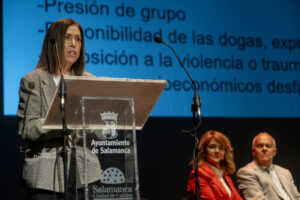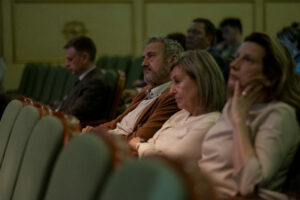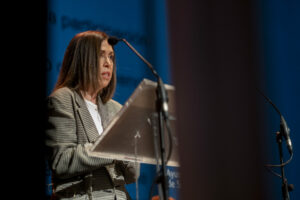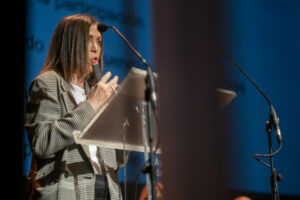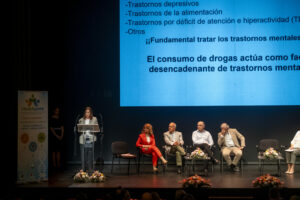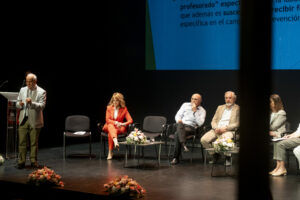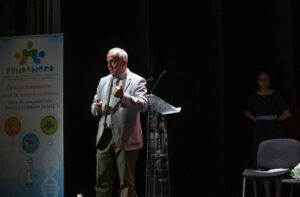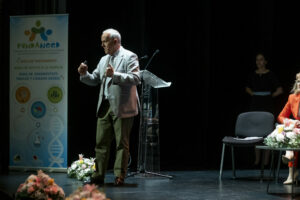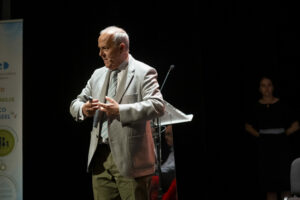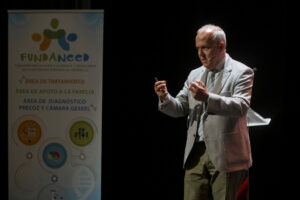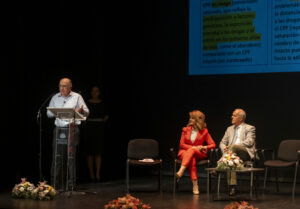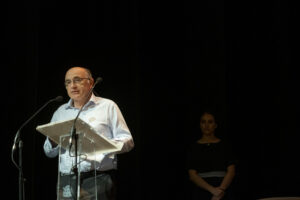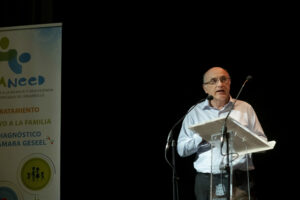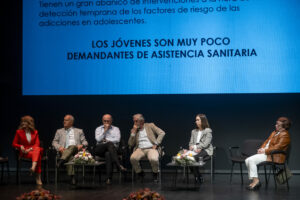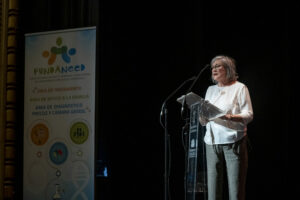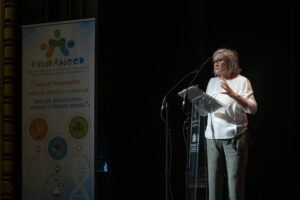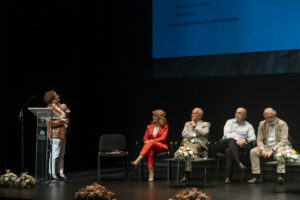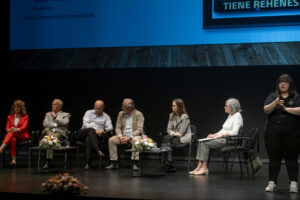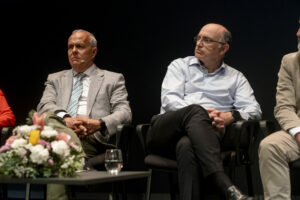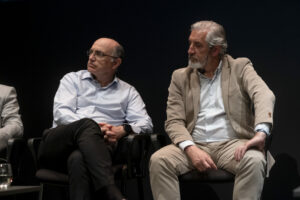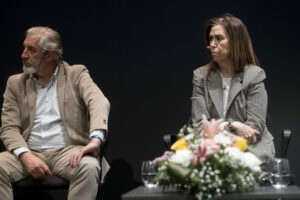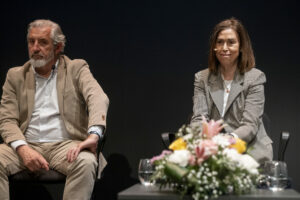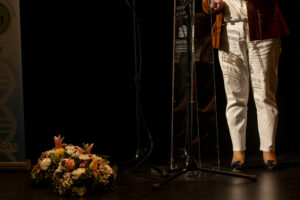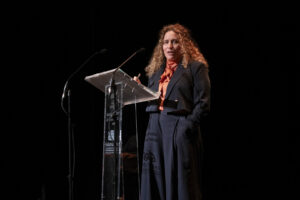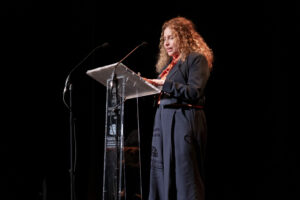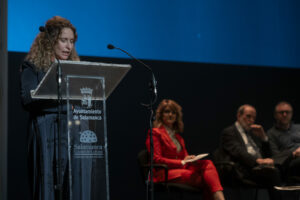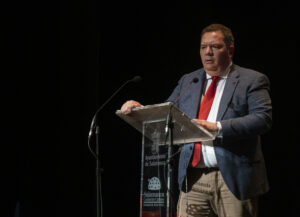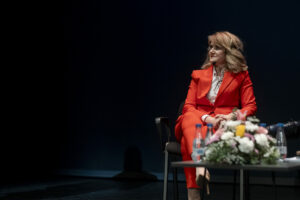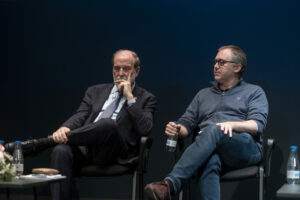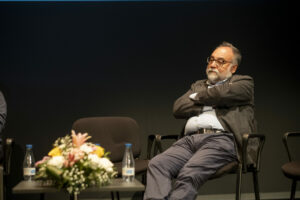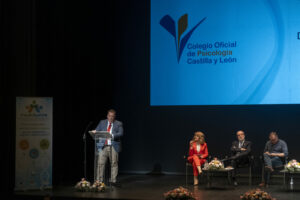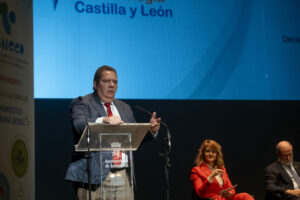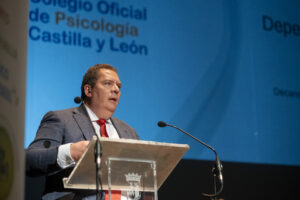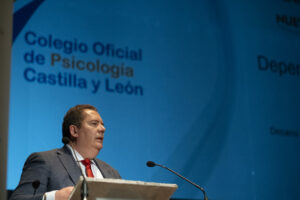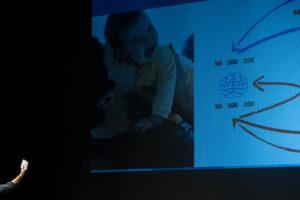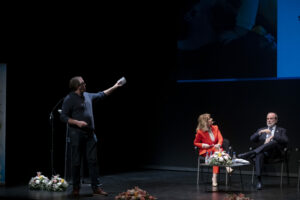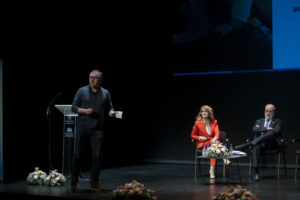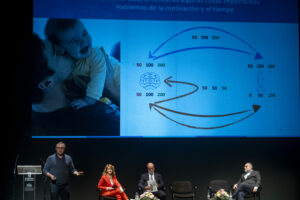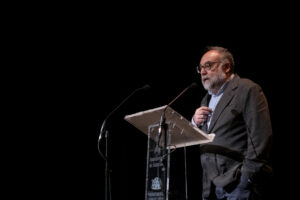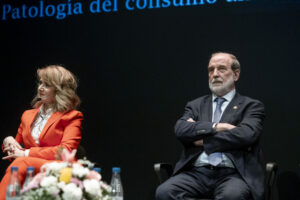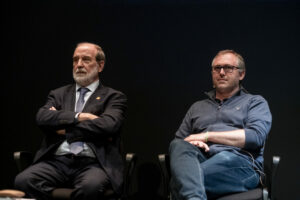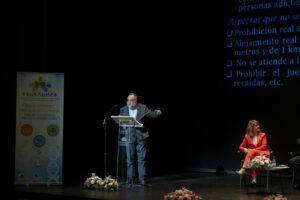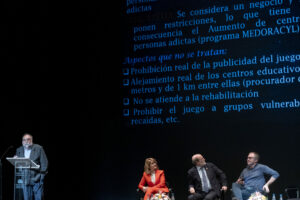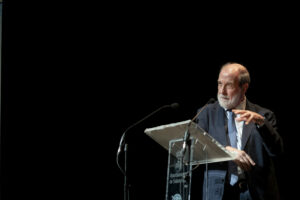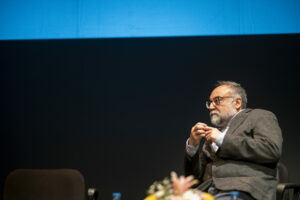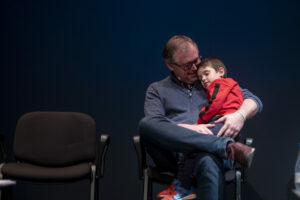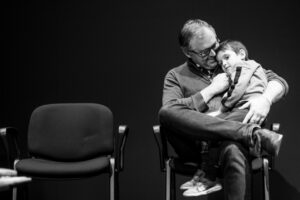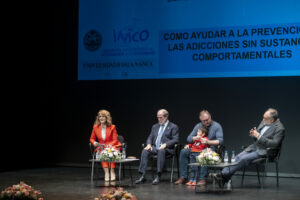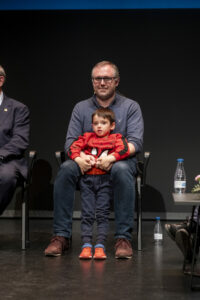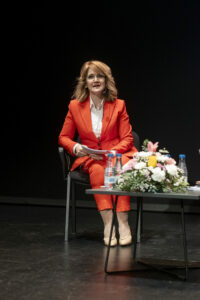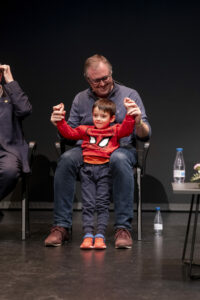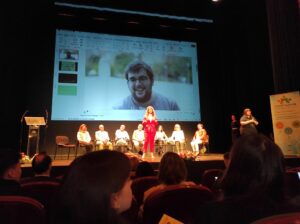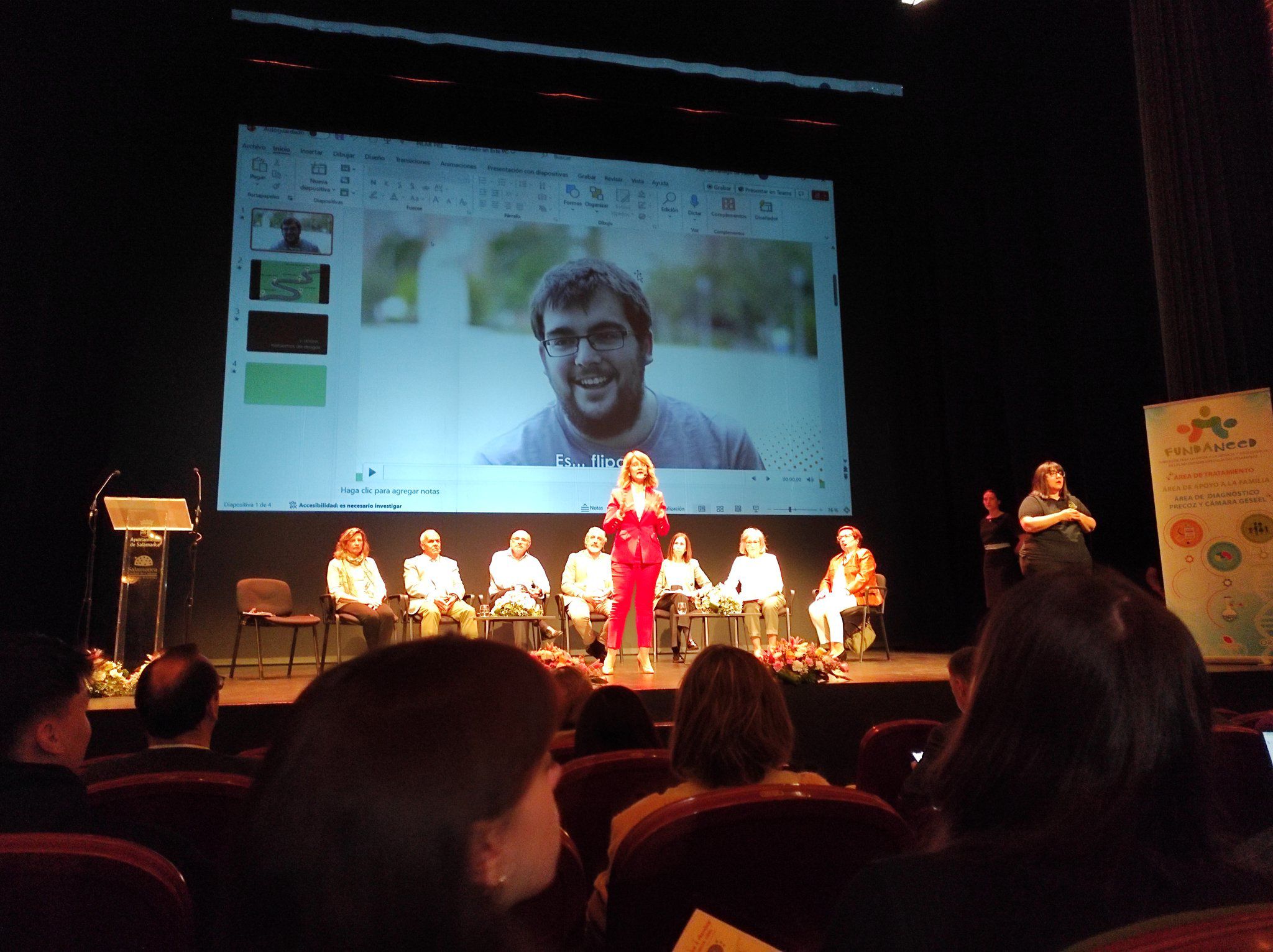“PREVENTION IS PROTECTION,” the motto of this workshop on addictions in the 21st century, a major public health issue, complex, where the only effective strategy is real prevention.
“How to prevent addictions: New challenges”
Alcohol, tobacco, cannabis, pink cocaine, steroids or designer drugs, pornography, online gambling, social networks, … are some of the addictions that our children face, and we as parents must know them to be prepared and able to inform them about them. That’s why this workshop was a unique opportunity to learn from renowned specialists how to address this situation that surrounds us.
Alongside the Councilor for Public Health of the City Council of Salamanca, Vega Villar, and the president of Fundaneed, Pilar Samaniego, up to ten experts participated in two very interesting debate panels on how to help prevent addictions.
In the panel on substance addictions, participants included: Dr. Montejo, head of the Psychiatry Department at the Hospital of Salamanca, and Dr. Ana Àlvarez, director of the addiction department, on warning signs and care networks. Then, Ángel Morín, provincial director of Education in Salamanca, spoke about the subject of addiction awareness and action protocols in schools; followed by Dr. Carlos Imaz, child and adolescent psychiatrist at the Río Hortega Hospital in Valladolid, who discussed drug plans in Castile and León; passing the baton to María José García, president of the Nursing College of Salamanca, who spoke about the relevance of nursing in primary care and in the educational system; and finally, Teresa Sánchez, dean of the Faculty of Psychology at the Pontifical University of Salamanca, on what happens in families and their crucial role in prevention.
And in the debate on non-substance addictions, participants included: Jaime Gutiérrez, dean of the College of Psychologists of Castile and León, who advocated for the use of devices in adults as a critique of the models toward our minors; joined by dean Juan José Melián, from the Faculty of Psychology at the University of Salamanca, on education in the correct use of devices rather than prohibition; then Dr. Manuel Fernández, neuropediatrician, discussed the brain’s impulses of rewards in the prefrontal cortex; Miguel A. Verdugo, professor of Psychology and Disability, affirmed the positive community function of the foundation in this area; and finally, Dr. González, representative of the Spanish Pediatrics Association, presented informational guides for families and teachers on the prevention of digital addictions.
A great response indeed, as together we can protect our minors and adolescents.

